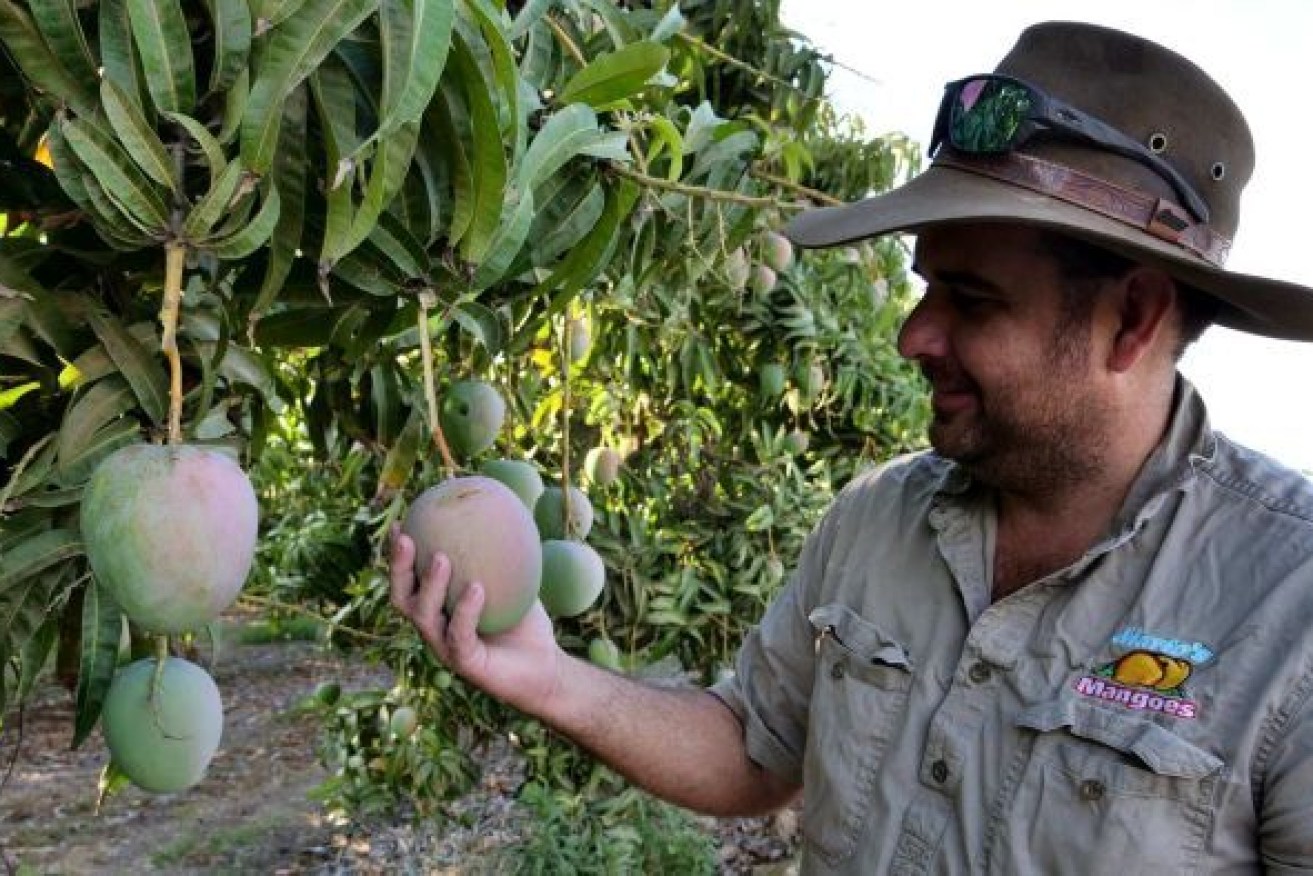Queensland’s mango season starts in Bowen amid export concerns due to COVID-19
The first of Queensland’s mangoes are being picked from the trees for the season, but the dark cloud of COVID-19 still hangs over production, picking, and freight.

Confidence among Queensland farmers is at near record levels. (Photo: ABC)
The first of Queensland’s mangoes are being picked from the trees for the season, but the dark cloud of COVID-19 still hangs over production.
The state’s growers have complained they are at a disadvantage because their counterparts in the Northern Territory have enjoyed higher export subsidies.
Australian Mango Growers Association chair Ben Martin, who farms at Bowen, says the disparity in subsidies between the states could mean up to $2 difference per box in the cost of production.
“We want a fair go for all mango growers across Australia,” he said.
With the number of flights drastically down because of the pandemic, the Federal Government introduced the International Freight Assistance Mechanism (IFAM) in a bid to keep international freight routes open.
“Most of our flights aren’t actually eligible for that [IFAM subsidies and so] the Northern Territory is getting a greater level [of support] than Queensland,” Martin said.
“There are a lot of restrictions on the flights going out — it’s at a huge cost and ultimately the grower bears that cost.”
The ABC contacted the Department of Trade but did not receive a response.
Fears of domestic glut
Growers said a lack of access to export markets could lead to a glut on local supermarket shelves.
While that might sound like good news for consumers, it could cause a crash in prices and make harvesting the fruit financially unviable for farmers.
About 12 per cent of the national crop is exported annually to key markets such as New Zealand, Hong Kong, Singapore and the United Arab Emirates.
Growcom policy and advocacy manager Richard Shannon said exports were vital in keeping the industry profitable.
“The more markets we have access to, the [more risk is reduced] to the industry,” Shannon said.
“The more options growers have for markets, the better — it means we can seek out the best prices possible.”
While IFAM funding had been well received by the industry, Shannon said there was room to improve.
“There have been mixed results in terms of growers being able to access those flights,” he said.
“Particularly those growers in North Queensland, further away from Brisbane and Sydney, where a lot of those IFAM subsidised flights have been leaving from.”
The future of exports
With the full impact of COVID-19 on international travel and flights yet to be known, the industry is looking to build better processes for the long term.
“We need a pathway forward,” Shannon said.
“We appreciate there needs to be a transition period — subsidising these flights probably isn’t sustainable into the long term.
“So we need to start working really hard for other ways for getting our produce overseas efficiently.”
Martin hoped the Federal Government would work with growers and peak body groups moving forward.
“We need to develop sustainable market access and protocols into our exporting countries so we can weather the storms like COVID,” he said.
“If we can have a high value market that we can put fruit into quite easily at a low cost, we can weather the extra five, six, seven extra dollars a tray on freight.”
“It’s going to hurt, but we’re still making an extra $10 on top than what we’re doing now, so you wouldn’t need the Federal Government to be doing programs like IFAM in that scenario.”
– ABC / Melanie Groves












